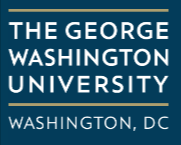Special educators not only impact the lives of their students, empowering them to achieve their dreams, but they also play the role of an advocate, changing perspectives on social barriers within communities.

Special educators not only impact the lives of their students, empowering them to achieve their dreams, but they also play the role of an advocate, changing perspectives on social barriers within communities. At GSEHD, we acknowledge each individual's uniqueness, need to belong, and right to learn.
We invite you to join us in creating an enhanced vision for special education that focuses on an individualized learning experience, promoting increased equity for all students. Develop knowledge and skills to infuse social justice ethics, culturally responsive practices, strength-based strategies, and disability rights lenses into your teaching and educational experiences.
Within our individualized teaching and learning approach, we focus on the tenets of positive psychology, personalized learning, and disability studies. With 20+ years of experience training exemplary special educators, the program balances rigorous training in evidence-supported educational practices with a robust clinically supervised hands-on experience. By way of a one- or two-year synchronous cohort experience, graduates develop the skills to deeply understand how personalized teaching and learning benefits all students and sustains teacher well-being and resilience, enabling them to become teachers who transform lives.
The George Washington University is co-leading a multi-institutional effort supported by the National Science Foundation (NSF) that will develop new artificial intelligence (AI) technologies designed to promote trust and mitigate risks, while simultaneously empowering and educating the public.
The NSF Institute for Trustworthy AI in Law & Society (TRAILS) unites specialists in AI and machine learning with systems engineers, social scientists, legal scholars, educators, and public policy experts. The multidisciplinary team will work with impacted communities, private industry, and the federal government to determine how to evaluate trust in AI.
How to develop technical solutions and processes for AI that can be trusted, and which policy models best create and sustain trust. David Broniatowski, an associate professor of engineering management and systems engineering at GW, is the lead principal investigator of TRAILS at GW.
Founded in 1884, the mission of the School of Engineering and Applied Science (SEAS) of The George Washington University is to serve the global community by:
Located in the nation’s capital, SEAS strives to promote a multicultural technological community and maintain and develop special integrated programs with industry and government.
SEAS' programs and degrees prepare professionals to be confident in their understanding of science and technology, capable of exercising constructive leadership, creative in the face of new environmental and societal challenges, and agile in the application of critical analytical skills during a life long learning that will open new career horizons.
In all of its activities, the School strives to create a vibrant atmosphere, providing for interaction and joint ventures among faculty, students, and the abundant resources of scientists and facilities available in the Washington Metropolitan Area.
© 2025 coursetakers.com All Rights Reserved. Terms and Conditions of use | Privacy Policy